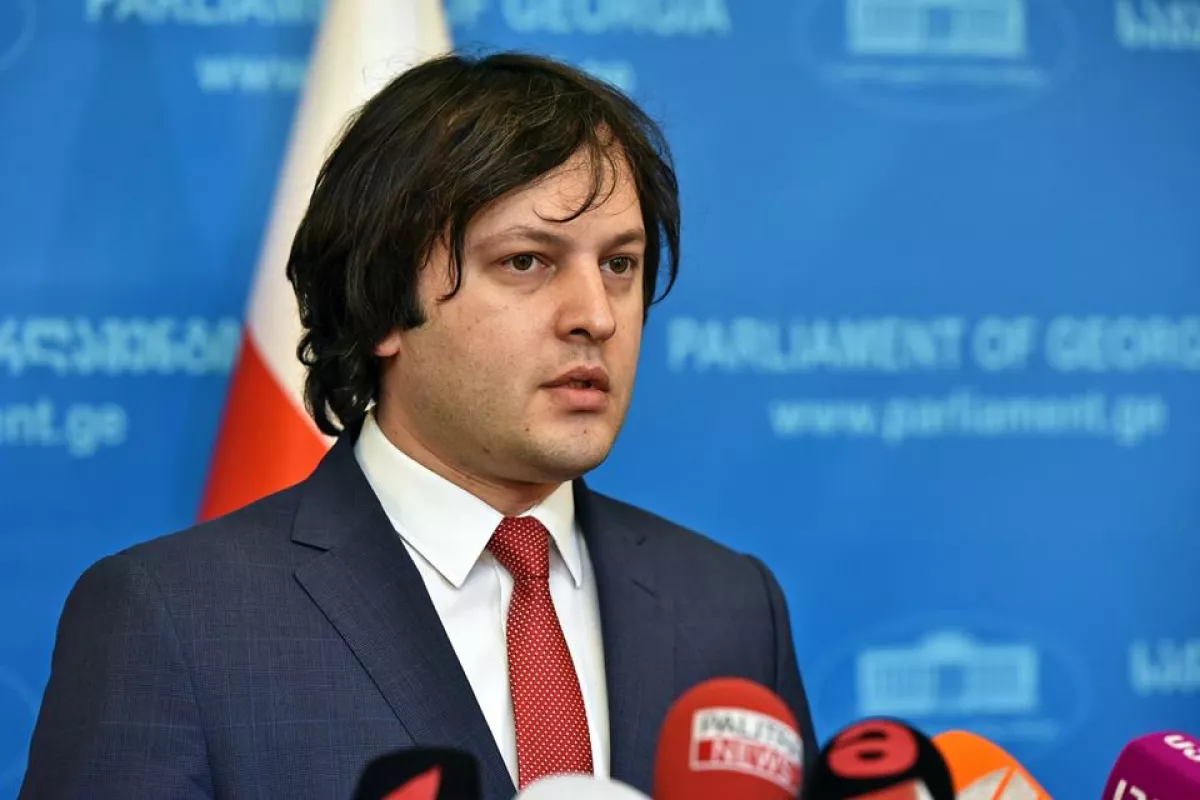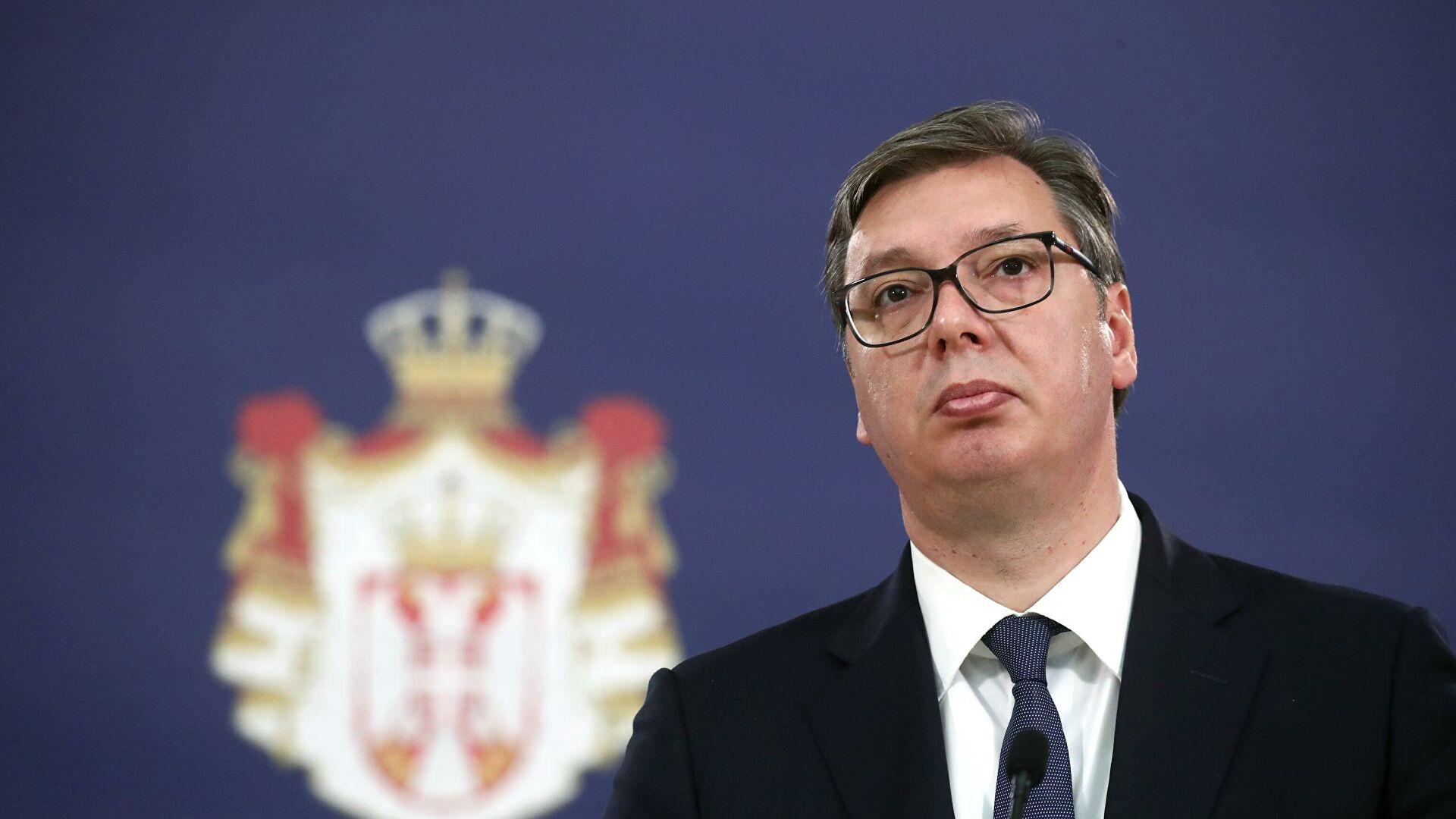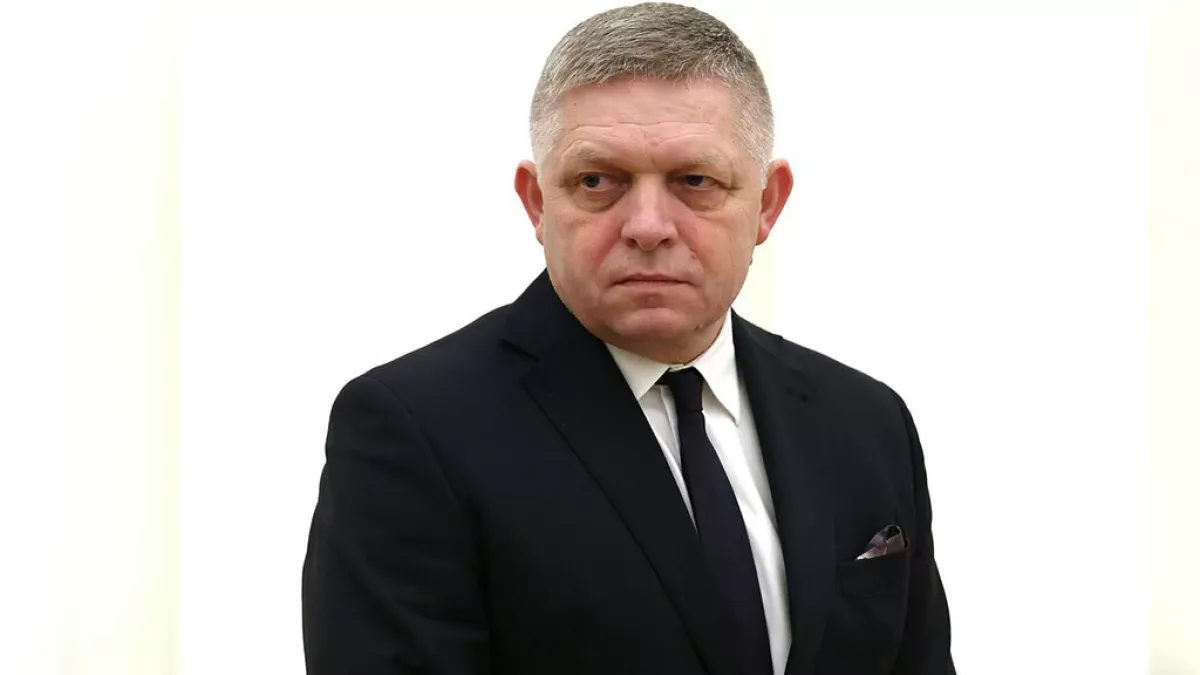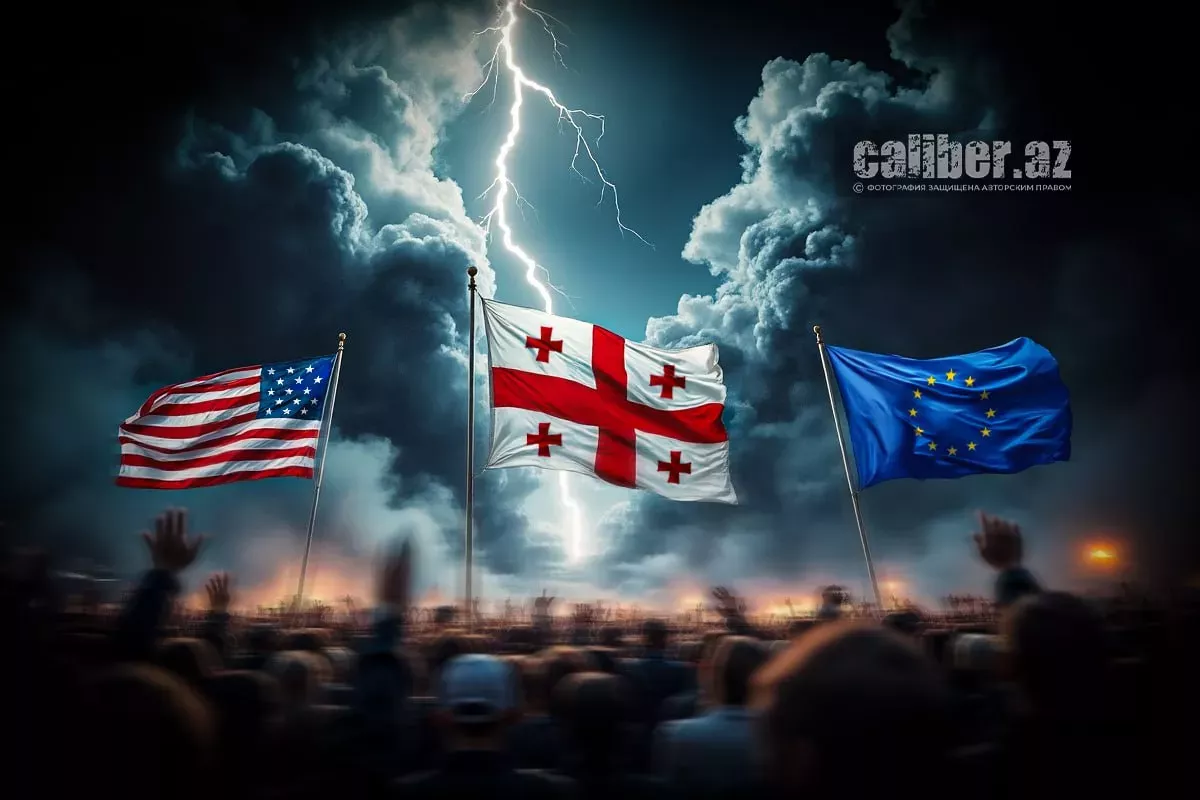European tactics of road blockades and terror Georgia, Serbia, Slovakia
The opposition in Georgia has significantly shifted its tactics of resistance. On February 2, opposition members attempted to transition from the increasingly unpopular and marginalized protests outside the parliament building in Tbilisi to blocking key transport highways. For Georgia, a nation strategically located at the crossroads of Asia and Europe and heavily reliant on transit routes, any precedent for blocking highways poses a serious risk. After failing to instigate a regime change in Tbilisi through a "Maidan" scenario, external actors are deliberately probing Georgia's vulnerabilities as a sovereign state. By orchestrating such provocative actions, they seek to destabilize both the domestic situation and the broader South Caucasus region.
Ahead of the opposition's planned highway blockade, Georgian Prime Minister Irakli Kobakhidze signed a decree designating international and national highways as strategic infrastructure. From now on, blocking access to these strategic sites is considered a criminal offence in Georgia, punishable by imprisonment for up to four years.

The opposition's attempt to block the main highway connecting Tbilisi with western Georgia near the "Tbilisi Mall" on the evening of February 2nd failed. This was due to the relatively small number of protesters and the effective organization of the police. Thirty-one participants, including opposition leaders such as Nika Melia and Gigi Ugulava, were arrested. The Georgian authorities' prevention of the blockade of this strategic route quickly drew a response from the European Union. "The brutal crackdown on peaceful protesters, journalists and politicians tonight in Tbilisi is unacceptable," wrote EU High Representative for Foreign Affairs and Security Policy, Kaja Kallas, on social media at the end of the day on February 2. The fact that these "peaceful demonstrators" were attempting to paralyze the country and undermine its security seemed to go unnoticed by Kallas.

The opposition in Georgia resorted to blocking highways after mass anti-government protests in Serbia and Slovakia, which were managed and coordinated from a single centre. In Serbia, the main highway in the capital was successfully blocked. On the eve of February 2, through Western media and social networks, "pro-European" Georgians openly called for blocking highways, "drawing inspiration" from the example of Serbian "revolutionaries."
"Until the end" – an action with this name was scheduled for February 2, and this time the protesters were aiming for a new level: they planned to block one of the entrances to Tbilisi, effectively paralyzing the city. This move was inspired by the Serbs, who forced the resignation of the Prime Minister by staging a 24-hour blockade of a key Belgrade highway. The methods of resistance and slogans in both countries are similar, and participants follow each other on social media, adopting successful protest tactics, as reported by the Echo of the Caucasus publication.
"From Tbilisi to Bratislava to Belgrade, people can no longer tolerate the rule of Russian puppets. They can no longer tolerate the attacks on the European Union. They know what they want. We must listen to them," wrote French MEP Nathalie Loiseau on her page, referring to "Russian puppets" as anyone who does not blindly follow the instructions of Brussels and Paris. Interestingly, Ms Loiseau largely built her career in the same department as former Georgian President Salome Zourabichvili — the French Ministry of Foreign Affairs.
However, Georgia’s law enforcement agencies quickly neutralized the February 2 provocation aimed at blocking highways. This was aided by the fact that the number of protesters was very small. This indicates that the opposition no longer has significant domestic support in the country. Furthermore, many people in Georgia working in the tourism industry have already noted a significant decrease in tourist traffic this winter and a decline in their incomes. People are logically linking this with the opposition's "revolutionary activity," which is scaring away tourists and depriving them of their earnings.
But the fact that Georgia "will not be left in peace" is shown by the examples of Serbia and Slovakia. While Slovakia is a full member of the EU and, like its neighbour Hungary, is trying to defend its sovereignty against the pressure of Brussels bureaucracy, Serbia does not have the "right to vote" or membership within the EU. Serbia, like Georgia, is promised "EU membership sometime in the future" and, in addition, is kept "in suspense" with issues related to Kosovo and territorial integrity.

Today, Serbia is subjected to the same external dictate as Georgia, although it is still making efforts to defend its national interests. This is particularly evident in its independent energy policy. For instance, despite dissatisfaction from France, Serbia has become one of Azerbaijan's key partners in the gas sector in Europe, which is extremely important for the country’s economy, considering the overall rise in energy prices in Europe. Recently, Serbian President Aleksandar Vučić expressed gratitude to Azerbaijani President Ilham Aliyev for gas supplies to the country. "Our brothers and friends from Azerbaijan have just informed me that regardless of objective problems caused by force majeure, there will be no suspension of gas to Serbia. Endless thanks to Azerbaijan and President Ilham Aliyev, whom I am looking forward to welcoming in Belgrade soon," said Aleksandar Vučić in his statement.
Slovakia is also strengthening its cooperation with Azerbaijan in the gas sector, which has become particularly important for the country following the cessation of Russian gas transit through Ukraine. This was stated by the country’s Prime Minister Robert Fico in a video message following the informal EU summit in Brussels, which was published on Facebook. "Together with the European Commission, we're working on an alternative of importing gas from Azerbaijan to Slovakia, which would ensure a good, quality gas supply for our country in terms of internal consumption," said Robert Fico.

Azerbaijan also unequivocally recognizes Serbia's territorial integrity, including Kosovo, unlike most of the country's "European partners," who have taken the path of ultimately dismantling and trampling its statehood. The recently resigned Prime Minister Miloš Vučević, although advocating for Serbia's EU membership, stated that Serbia cannot become a member while "experiencing humiliation and shame, because in that case, it will never be a good EU member." But it seems that it is precisely this "humiliation and shame" that Serbia's European "friends" are trying to impose on the country today through "revolutions" and "Maidans."
Mass protests in Serbia began after the collapse of the railway station canopy in Novi Sad on November 1, 2024, resulting in the deaths of 15 people. This tragedy was skillfully used to organize student protests, who accused the authorities of "corruption" and demanded the resignation of the government and the leadership of Novi Sad. The protests escalated, becoming increasingly larger, and eventually, the protesters moved on to blocking bridges over the Danube and major highways in the country's capital, Belgrade. This immediately dealt a blow to Serbia's economy and complicated cargo transit, as one of the main transport routes from Türkiye to Western Europe passes through Serbia.
An obvious provocation was also organized to make the "revolution" irreversible — on the night of January 27 to 28, several university students in Novi Sad, who were pasting stickers in support of the protests in front of the building of the ruling party in Serbia, were attacked by men with baseball bats. In other words, everything was organized to "convince" public opinion that the ruling party had allegedly "started terror" against its opponents. Naturally, all liberal media in EU countries were unequivocally on the side of the protesters.
The Serbian authorities made concessions, and on January 28, Prime Minister Miloš Vučević and Novi Sad Mayor Milan Đurić announced their resignations. However, this is unlikely to quickly calm the situation. On February 1, mass protests once again engulfed Novi Sad, blocking all three bridges over the Danube for several hours, connecting the two parts of the city, and setting up a 24-hour blockade of one of them — the Liberty Bridge. The opposition has already announced another wave of protests across the country for February 7. The example of Serbia clearly shows that concessions to externally driven protests and "Maidans" are unlikely to lead to anything good, except the humiliation of the country.
In contrast to Serbia, the "pro-European" protests in Slovakia against the independence of Robert Fico's government, which took place in January, have subsided. Robert Fico recently made a statement claiming that the opposition had been preparing a coup in Slovakia with the help of a "group of experts" who had actively participated in recent events in Georgia and the organization of the "Maidan" in Ukraine, and for this reason, he convened a meeting of the Security Council.

The Prime Minister of Georgia, Irakli Kobakhidze, essentially agreed that the attempted coups in Georgia and Slovakia are interconnected.
"This is absolutely logical. I don't know the details, but it is absolutely logical. Such processes in different countries are coordinated by one hand. I have often quoted the specific video address by Slovak Prime Minister Robert Fico, where he describes the processes occurring in Slovakia, including the spread of liberal fascism within the country. What he describes in his ten-minute address is absolutely identical to what is happening now in Georgia. Therefore, such direct coordination is not only not excluded, but is quite logical. Hence, I cannot question the statement of the Prime Minister of Slovakia," Irakli Kobakhidze said in an interview with the "Imedi" channel.
Moreover, there is a strong suspicion that Fico's "European friends" have resorted to direct terror tactics against him. The fact that the pressure on Robert Fico and Slovakia is directly linked to the leadership of the European Union became clear from a statement made by the Prime Minister of Georgia, Irakli Kobakhidze, after an assassination attempt on the Slovak Prime Minister in May 2024. Irakli Kobakhidze revealed the contents of a phone conversation with one of the European Commissioners.
"In a conversation with me, the European Commissioner listed a number of measures that Western politicians can take after overcoming the veto on the transparency law, and while listing these measures, he mentioned - 'You see what happened to Fico, and you should be very careful'," said Kobakhidze, without naming the interlocutor. However, from the words of the Georgian Prime Minister, it is clear what methods "democratic Europe" might use against politicians who attempt to defend their countries' sovereignty in the face of Brussels' diktat.
Vladimir Tskhvediani, Georgia, for Caliber.Az








